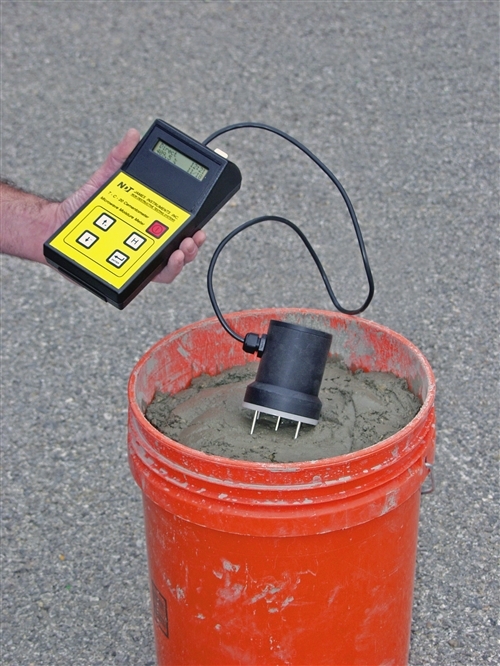Moisture Meter Reviews: Contrasting the Best Models for Professional and DIY Use
Moisture Meter Reviews: Contrasting the Best Models for Professional and DIY Use
Blog Article
The Ultimate Guide to Moisture Meters: A Comprehensive Review and Exactly How They Can Conserve You Cash
In the realm of building maintenance, construction, and numerous markets, the value of accurately measuring dampness degrees can not be overemphasized. Wetness meters work as important tools in discovering and keeping an eye on moisture material in products, helping in avoiding pricey problems and ensuring the top quality of items. Comprehending the nuances of various sorts of moisture meters, their applications, and the possible cost-saving benefits they provide can be a game-changer for experts and companies alike. Finding how these devices can not just enhance processes yet also add to monetary cost savings is a journey worth getting started on.
Kinds Of Wetness Meters
Different sorts of moisture meters are available for different applications in various markets. One usual type is the pin-type wetness meter, which determines the electric resistance in between 2 pins placed right into a product. This kind appropriates for wood, drywall, and other building products. Pinless dampness meters, on the other hand, use electromagnetic sensor plates to check a bigger location without creating damages to the material's surface area. Moisture Meter. These meters are perfect for promptly analyzing dampness levels in large areas such as walls and floors.

Infrared wetness meters measure the thermal residential properties of a material to identify its moisture material non-invasively, making them useful for applications where pin or pinless meters might not be ideal. Recognizing the different types of wetness meters available can assist sectors select the most appropriate tool for their particular wetness measurement requirements.

Advantages of Utilizing Dampness Meters
Wetness meters supply invaluable benefits in properly monitoring and examining wetness levels in diverse materials and environments. One of the primary advantages of making use of dampness meters is the avoidance of prospective damage created by excess dampness.
In addition, making use of dampness meters can cause boosted energy performance. By recognizing locations with high dampness levels, such as leakages or bad insulation, adjustments can be made to improve power preservation and decrease utility prices. In farming settings, dampness meters play a crucial duty in enhancing plant yields by making it possible for farmers to keep an eye on soil dampness levels and make informed watering decisions. Overall, the advantages of using dampness meters cover throughout different sectors, giving economical services and advertising much better quality assurance methods.
Just How to Choose the Right Wetness Meter
When picking a dampness meter, it's essential to make sure that the meter is suitable for the specific product you will certainly be screening. Different materials have varying electric residential properties that can affect dampness readings, so picking a meter created for your material is vital for precise outcomes. By thoroughly reviewing these aspects, you can choose a moisture meter that meets your demands and provides precise moisture measurements for your projects.
Correct Strategies for Wetness Meter Use

Price Financial Savings Through Dampness Meter Applications
Just how can the tactical usage of wetness address meters lead to significant cost financial savings throughout various industries? In the farming industry, moisture meters help in figuring out the ideal time for harvesting crops, protecting against excess or over-drying wetness that can impact the last product's top quality.
Similarly, in building and construction, wetness meters aid avoid pricey damages by spotting dampness levels in structure products, such as wood or concrete, which can bring about structural problems otherwise dealt with without delay. By determining trouble areas early, professionals can take rehabilitative steps to stay clear of substantial repair work or substitutes, eventually saving money and time.
Additionally, in the food handling market, moisture meters are crucial for keeping an eye on product high quality and making sure compliance with safety and security guidelines. By properly determining dampness web content in foodstuff, makers can prevent putridity, preserve quality, and minimize waste, causing substantial cost savings. On the whole, the strategic application of moisture meters is a beneficial investment that can cause significant cost reductions and boosted efficiency across different markets.
Verdict
In conclusion, wetness meters are useful devices for measuring and finding dampness levels in various materials. By using the appropriate moisture meter and complying with correct strategies, customers can efficiently avoid expensive problems triggered by excess wetness. Purchasing a high quality dampness meter can cause considerable expense savings in Recommended Site the future by determining prospective problems early and making it possible for prompt removal. Eventually, dampness meters are essential instruments for maintaining the integrity and long life of structures and materials.
Dampness meters serve as essential devices in spotting and monitoring moisture material in products, helping in protecting against expensive problems and ensuring the high quality of items. Infrared moisture meters gauge the thermal residential properties of a material to identify its dampness content non-invasively, making them beneficial for applications where pin or pinless meters might not be suitable.Dampness meters provide invaluable advantages in precisely checking and assessing wetness levels in diverse products and environments. In farming settings, wetness meters play a her comment is here crucial function in maximizing crop yields by making it possible for farmers to keep track of dirt moisture degrees and make informed irrigation choices.In conclusion, wetness meters are valuable devices for spotting and gauging dampness degrees in numerous products.
Report this page